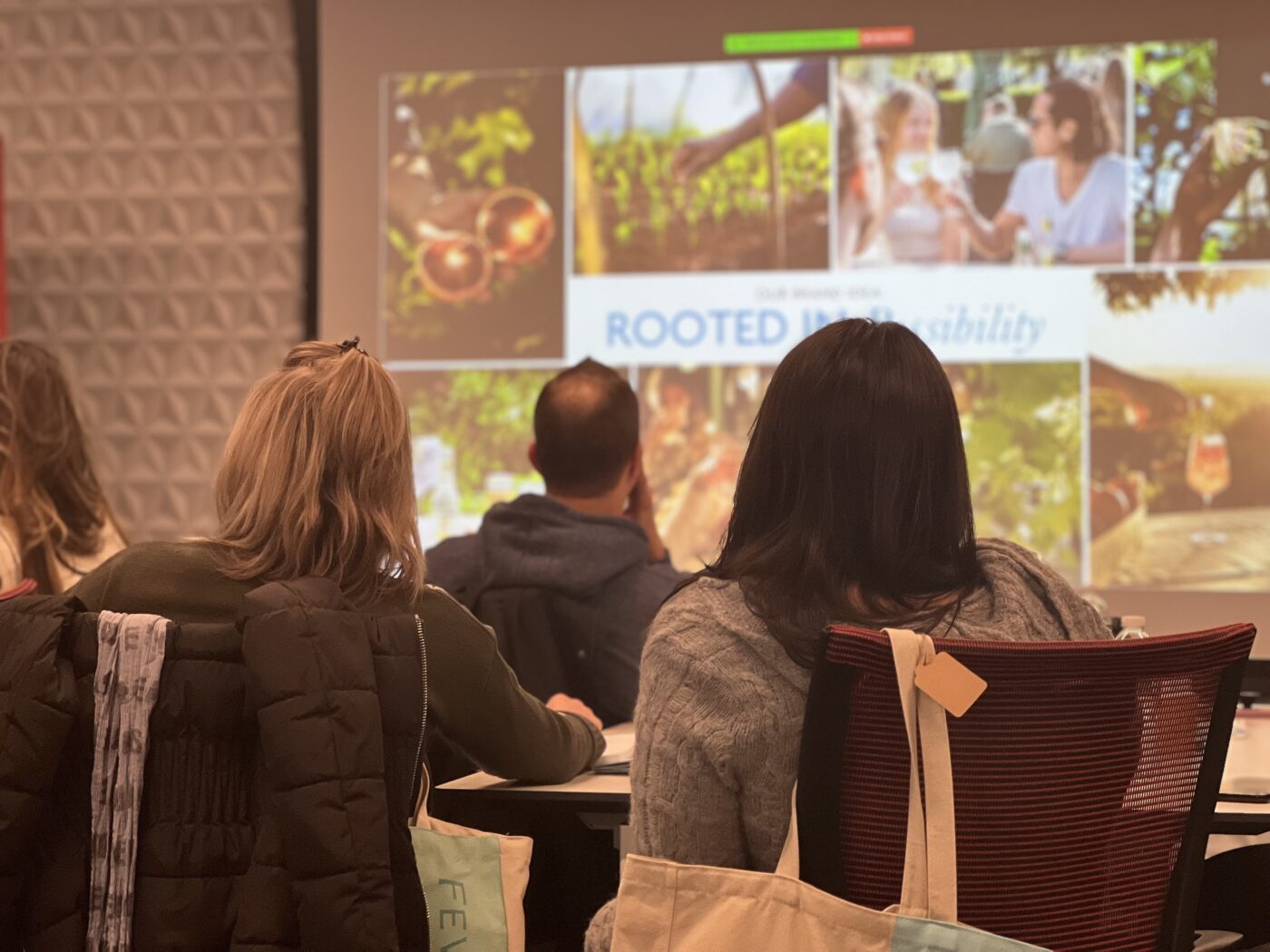A series that addresses the natural challenges and opportunities of being a human being inside the context of organizations
No company is perfect—after all, a company is just a collection of human beings who organize themselves in some fashion to deliver a desired (or often undesired) outcome. And, just maybe, your company isn’t as bad as you think. Instead, it might be that the humans who work there fall prey to unconscious tendencies that inhibit professional success and personal growth. But what if you could do something about it?
From our last installment (#8)
We examined the inevitable dysfunction that occurs when employees are operating in dispersed locations, focusing on the contrast between global HQs and their regional offices, in particular. This challenge of ‘spatial distance’ is magnified of course given the expansion of hybrid/remote ways of working born from the pandemic. And we offered some solutions that any leader can benefit from applying.
If you missed this installment (8), click here to read: installment 8
Installment 9
‘The Great Resignation’ as it has been called, involving so many people leaving their jobs—primarily in hospitality—though certainly not limited to this industry, at its core is a response to a human quest for meaning; truly an existential crisis spurred on by the pandemic–a catalyst but not the true cause—has people searching for the rare combination of fulfillment, meaning, AND the ability to make a living at the same time.
The truth is that more than half the population was actively disengaged at work before the pandemic. This event served only as a catalyst–working from home, blending “life with work or vice-versa” gave us pause to reflect on who we are and what we are doing with our lives. But with our mental health suffering, perhaps facing the loss of loved ones, exasperated by workload and zoom calls, we had to do something. It’s time for a change.
Companies that prioritize employee experience—whether, through benefits, flexibility, inclusion, or a sense of purpose see clear reductions in turnover compared to their peers.
In response to this challenge, many companies are doing something that the best have always done—revisiting their organization’s ‘purpose’. Bringing this to life in more meaningful ways truly impacts the employer brand, inspiring people to join and remain. However, there is another step required to make a difference in retaining employees—working at the individual level–and it’s one that rarely is considered.
Help individual employees discover their (personal) purpose and work to help them live it within the context of your operating environment.
Before sharing the approach to do that, it is worth noting that the use of the term ‘purpose’ is often misunderstood, as some tend to anchor it on the kind of work the company does or the business model it operates within. To be clear, purpose should be something bigger than the business—something noble, inspiring, that brings real value to the world through strategic overtones. It is both idealistic in some way AND useful as a guide to what the organization serves to achieve.
Consider these for example:
“To accelerate the world’s transition to sustainable energy”
“To connect the world’s professionals to make them more productive and successful”
“Inspire the athlete within”
“To make everyday life simpler”
“Progressing people’s professional lives”
Likely you can guess whose purpose statement these are—or get very close. That’s the power in them.
Here is another one that gets close, though isn’t quite what we refer to as a true purpose: “To build the web’s most convenient, secure, cost-effective payment solution.” PayPal has identified a mission here—what the company does, not why they do it. It is a statement that is needed but not complete. Even Linked-In’s statement above (the second one listed) combines a mission with a purpose, the latter coming at the end of the statement.
Clearly, new generations of the workforce value purpose highly so getting this right becomes a strategic imperative. Typically, acting as an anthropologist, one can trace the roots of a business purpose to its founders—the ones that spotted the opportunity, built a business, and fostered a culture that led to capitalizing on it. Operating as ‘insurgents,’ the businesses flourished—though often, as they grew, lost sight of their purpose with business suffering as a result.1
Once this is set, properly embedded into strategy and culture, there is a sense of relief emerging from the clarity it provides and the sense of connection it fosters. Indeed, not just a ‘warm & fuzzy’ statement.
Taking the next step involves making it personal for your people. Every human has a story, one of strength, with key themes that make an individual unique. “Focusing on strengths is the surest way to greater job satisfaction, team performance, and organizational excellence.”2 Often it lay dormant as years of ‘heads down’ work has left many feeling empty and even lost. The best companies and teams are tapping into the power of personal purpose, helping their people tap into theirs’ and fostering a connection to the overall good of the organization.
Consider Dolf van den Brink, (the CEO of Heineken globally). He identified a decidedly unique purpose statement—“To be the wuxia master who saves the kingdom”—which reflects his love of Chinese kung fu movies, the inspiration he takes from the wise, skillful warriors in them, and the realization that he, too, revels in high-risk situations that compel him to take action.3
My own purpose: ‘E3 for the Greater Good’ (energize, educate, and (help) evolve) people and teams to be the best version of themselves aligns brilliantly with that of my company (Perpetual) which is to “lead companies and people on the collaborative journey toward their greatest potential.” Could I have done better?
As a true sports fan, I have always wanted to work for ESPN, especially in the early years. They don’t have an explicit purpose though their mission is “to Serve Sports Fans. Anytime. Anywhere.” They got their mission right. But the purpose, the greater why? Perhaps it could be ‘fueling the passion of sport’s fans” or “connecting fans to the thrill of victory and the agony of defeat’ (Wide World of Sports, formerly of ABC). If I combine my love of sports with my desire to help others become the best version of themselves, that would be utopia. If ESPN has a culture to match, with strong values to which I admire, then I could never leave. I would be home already.
There are other benefits to getting this right. Meaning matters: “Those who have a ‘why’ to live, can bear with almost any ‘how’.”4 This quote from Viktor E. Frankl, from his famous book ‘Man’s (should have been People’s…) Search for Meaning,’ shows that, given the right fit (person to team, team to organization), people become more agile and adaptable than ever. As so many leaders work to build adaptive (change) capacity in their people, simply focusing on purpose allows them to work with their teams to quickly adapt to the dynamic conditions we face in business today.
Companies need to help people find their personal purpose. How? First, ensure your organizational purpose has gravitas. It must mean something, and it must link to how a business distinguishes itself strategically. Do the hard work here first, involving people throughout your organization. Then, facilitate sessions with your people to share their stories of strength—when they were operating at their very best—personally or professionally. Through this process, people get in touch with their reason for being—cathartic experiences that change people’s perspective in amazing ways. Connect that to the overall purpose, and your talent will be unleashed.
Additionally, many flatter, more nimble organizations are grappling with how to sustain the motivation of people when traditional mechanisms such as vertical growth, new titles, or job promotion are not available to utilize as levers like they once were. Helping individuals find their purpose is the foundation of one’s mental health and leads people to value experience above all else. Imagine a “human development plan” instead of a “personal development,” the latter more focused on short-term tactical skill advances. The former, on the other hand, is built once and identifies experiences inside the organization—and perhaps outside (volunteer work)—that contribute to their living their purpose. This enriches their souls, inspires them to continue on, and, empirically, brings results to the business.
Some leaders will find this personal touch perhaps a bit soft. The power of it, however, is anything but: find and keep your best people and help them be HUMAN at work.
May the force be with us all.
1’Zook, C. & Allen, J. (2016). The Founders Mentality. Cambridge, MA. Harvard Business Review Press.
2Buckingham, M (Often).
3Craig, N. (Unknown). Passion x Purpose. The Age of Ideas. https://theageofideas.com/hbr-from-purpose-to-impact/
4Frankl, Viktor (2006). Man’s Search for Meaning. Boston, MA. Beacon Press.










